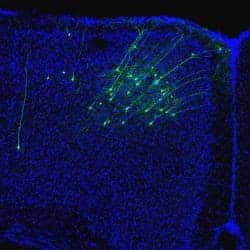Did you know that noise affects your taste buds, changing your sense of taste in loud environments? This phenomenon was investigated by a team of food scientists at Cornell University, who examined how airplane noise affects the palate. According to an article published online in the March 16, 2015 edition of the Journal of Experimental Psychology: Human Perception and Performance, airplane passengers who eat in-flight meals vary in their ability to taste sweet, sour, bitter, and salty flavors. The researchers found that loud noise causes sweetness to be suppressed, and savoriness to be enhanced.
In their article, the study authors use a Japanese scientific term, umami, which describes the savory taste of amino acids such as glutamate in foods like tomato juice. As described in the article, the researchers found that in noisy situations such as the cabin of a jetliner, where noise levels often reach 85 decibels, umami-rich foods are more appealing to our taste buds.
“Our study confirmed that in an environment of loud noise, our sense of taste is compromised,” said Robin Dando, PhD, assistant professor of food science at Cornell University. “Interestingly, this was specific to sweet and umami tastes, with sweet taste inhibited and umami taste significantly enhanced. The multisensory properties of the environment where we consume our food can alter our perception of the foods we eat.”
Dando, who collaborated on this study with Kimberly Yan, MPS, reported that exposure to noisy conditions resulted in a suppression of taste intensity where the sweet sense of taste was dulled. The co-authors say the study may guide reconfiguration of airline menus to match taste preferences in loud environments so that airline foods taste better to passengers.
According to an announcement from Cornell University, airlines acknowledge the phenomenon of air travel affecting the palate. German airline Lufthansa had reportedly noticed that passengers were consuming as much tomato juice as beer. The airline commissioned a private study released last fall that showed cabin pressure enhanced tomato juice taste.
The researchers say that taste perception depends not only on the integration of several sensory inputs associated with the food or drink itself, but also on the sensory attributes of the environment in which the food is consumed.
“The multisensory nature of what we consider ‘flavor’ is undoubtedly underpinned by complex central and peripheral interactions,” said Dando. “Our results characterize a novel sensory interaction, with intriguing implications for the effect of the environment in which we consume food.”
Source: Cornell University, Journal of Experimental Psychology: Human Perception and Performance
Photo credits: Cornell University; © Dolgachov | Dreamstime.com








“Japanese scientific term, umami”
It’s not a scientific term. It’s the noun from “umai” meaning “tasty.” There’s an unintentionally hilarious Japanese docudrama about the founder of Aji-no-moto (MSG flavoring). He’s sitting at the dinner table getting his family’s reactions to flavor. One by one the family members say words: “amai” (sweet), etc. Then one of the younger kids says “Umai!” (delicious,tasty). It’s a eureka moment for the entrepreneur – he’ll say that his product has “umami.” So no, not scientific at all.